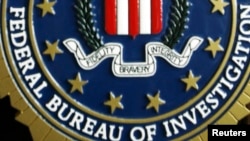U.S. federal prosecutors have charged the chairman of Temple University's physics department in connection with an alleged scheme to provide sensitive technology to China.
Xi Xiaoxing, a naturalized U.S. citizen who was born in China, is facing charges of wire fraud.
Prosecutors have accused the 47-year-old of seeking prestigious appointments in China in exchange for providing data on electronics technology invented by a U.S. company.
Xi was working for the U.S. firm while on sabbatical in 2002. The company developed a thin-film superconducting device containing magnesium diboride.
In 2004, Xi was awarded a grant from the U.S. Defense Department to purchase the device for research, but prosecutors allege he "exploited it for the benefit of third parties in China, including government entities."
Xi faces up to 80 years in prison and a $1 million fine if convicted.
Earlier this week, the U.S. Department of Justice charged six Chinese nationals with economic espionage and theft of trade secrets for allegedly accessing secret U.S. technologies and sharing them with universities and companies controlled by the Chinese government.
The defendants include Hao Zhang, who is in custody, his fellow engineer Wei Pang and four other Chinese engineers and professors accused of stealing trade secrets from two U.S. technology companies, Skyworks Solutions and Avago Technologies.
The American companies produce radio-frequency filters known as FBARs (thin film bulk acoustic resonators) - devices used in cellphones and other mobile devices that process incoming and outgoing wireless signals.
Pang and Zhang were awarded doctorates in electrical engineering from a university in California in 2005 and subsequently began working for Avago and Skyworks, respectively.
According to the indictment unsealed this week, during 2006 and 2007, the two U.S.-trained engineers, together with other co-conspirators, approached Chinese universities and companies with proposals to begin manufacturing FBAR chips in China.
By 2008, they began working with Tianjin University to establish a FBAR fabrication facility there while continuing their work at Avago and Skyworks, U.S. officials said. One year later, they resigned and took up full-time professorships at the school, later forming a company to mass produce FBARs.
Those indicted along with Pang and Zhang were identified as Jinping Chen, Huisui Zhang, Chong Zhou and Zhao Gang.







